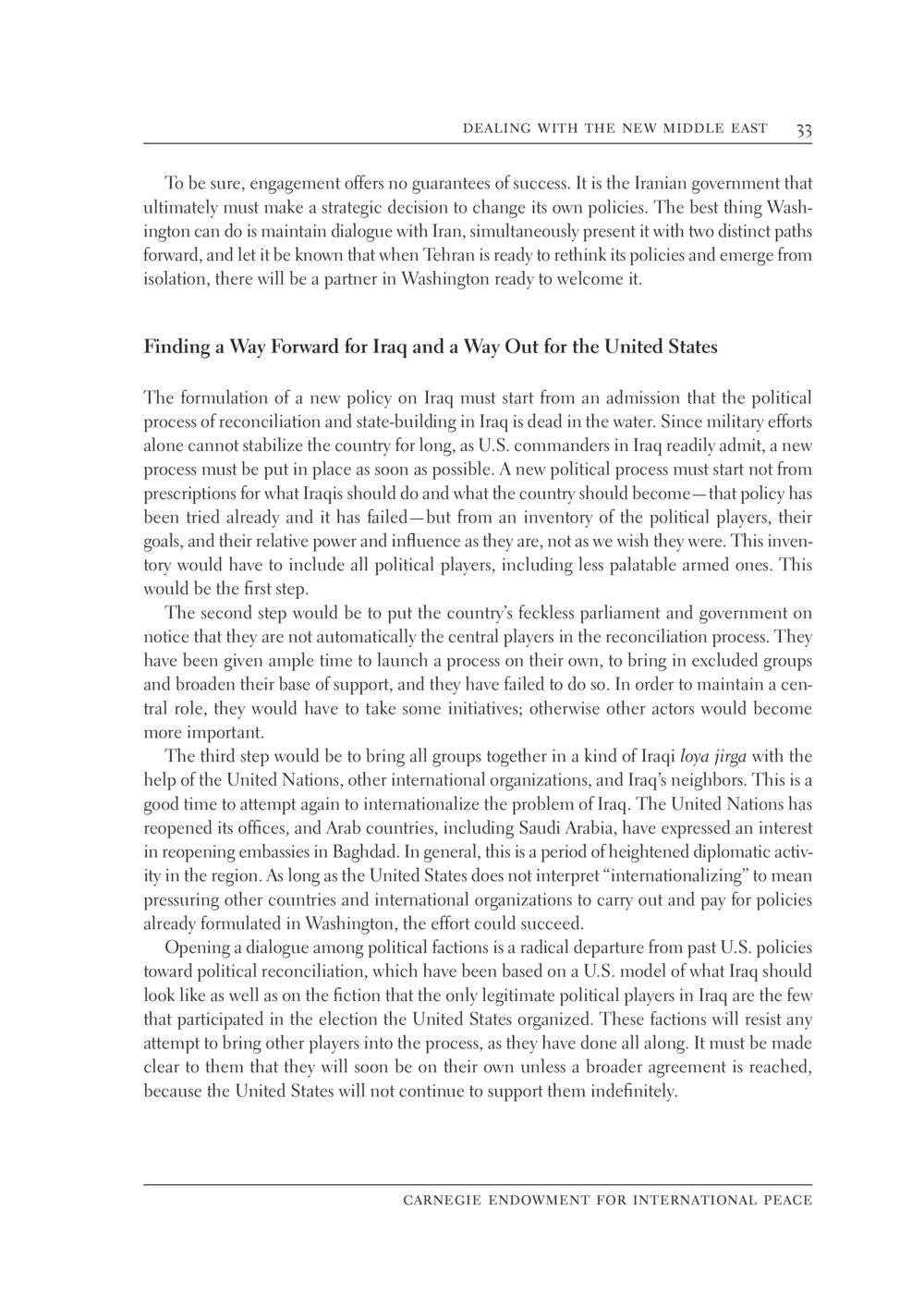mdi:book-open-variant-outline ข้อความต้นฉบับในหน้า
To be sure, engagement offers no guarantees of success. It is the Iranian government that ultimately must make a strategic decision to change its own policies. The best thing Washington can do is maintain dialogue with Iran, simultaneously present it with two distinct paths forward, and let it be known that when Tehran is ready to rethink its policies and emerge from isolation, there will be a partner in Washington ready to welcome it.
**Finding a Way Forward for Iraq and a Way Out for the United States**
The formulation of a new policy on Iraq must start from an admission that the political process of realignment and state-building in Iraq is dead in the water. Since military efforts alone cannot stabilize the country for long, as U.S. commanders in Iraq readily admit, a new process must be put in place as soon as possible. A new political process must start not from prescriptions for what Iraqis should do and what the country should become—that policy has been tried already and it has failed—but from an inventory of the political players, their goals, and their relative power and influence as they are, not as we wish they were. This inventory would have to include all political players, including less palatable armed ones. This would be the first step.
The second step would be to put the country’s feckless parliament and government on notice that they are not automatically the central players in the reconciliation process. They have been given ample time to launch a process on their own, to bring in excluded groups and broaden their base of support, and they have failed to do so. In order to maintain a central role, they would have to take some initiatives; otherwise other actors would become more important.
The third step would be to bring all groups together in a kind of Iraqi *loya jirga* with the help of the United Nations, other international organizations, and Iraq’s neighbors. This is a good time to attempt again to internationalize the problem of Iraq. The United Nations has reopened its offices, and Arab countries, including Saudi Arabia, have expressed an interest in reopening embassies in Baghdad. In general, this is a period of heightened diplomatic activity in the region. As long as the United States does not interpret "internationalizing" to mean pressuring other countries and international organizations to carry out and pay for policies already formulated in Washington, the effort could succeed.
Opening a dialogue among political factions is a radical departure from past U.S. policies toward political reconciliation, which have been based on a U.S. model of what Iraq should look like as well as on the fiction that the only legitimate political players in Iraq are the few that participated in the election the United States organized. These factions will resist any attempt to bring other players into the process, as they have done all along. It must be made clear to them that they will soon be on their own unless a broader agreement is reached, because the United States will not continue to support them indefinitely.





















































